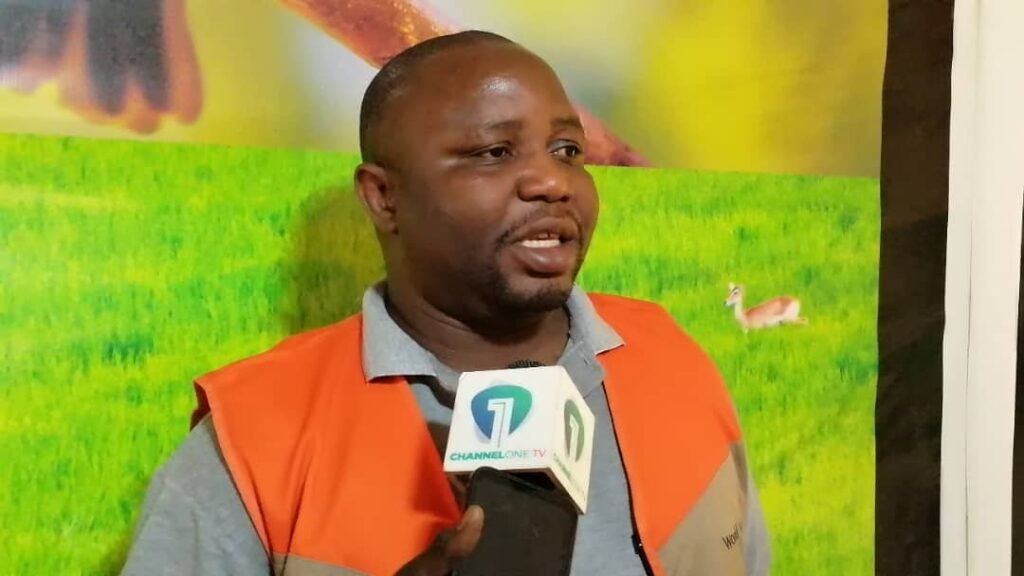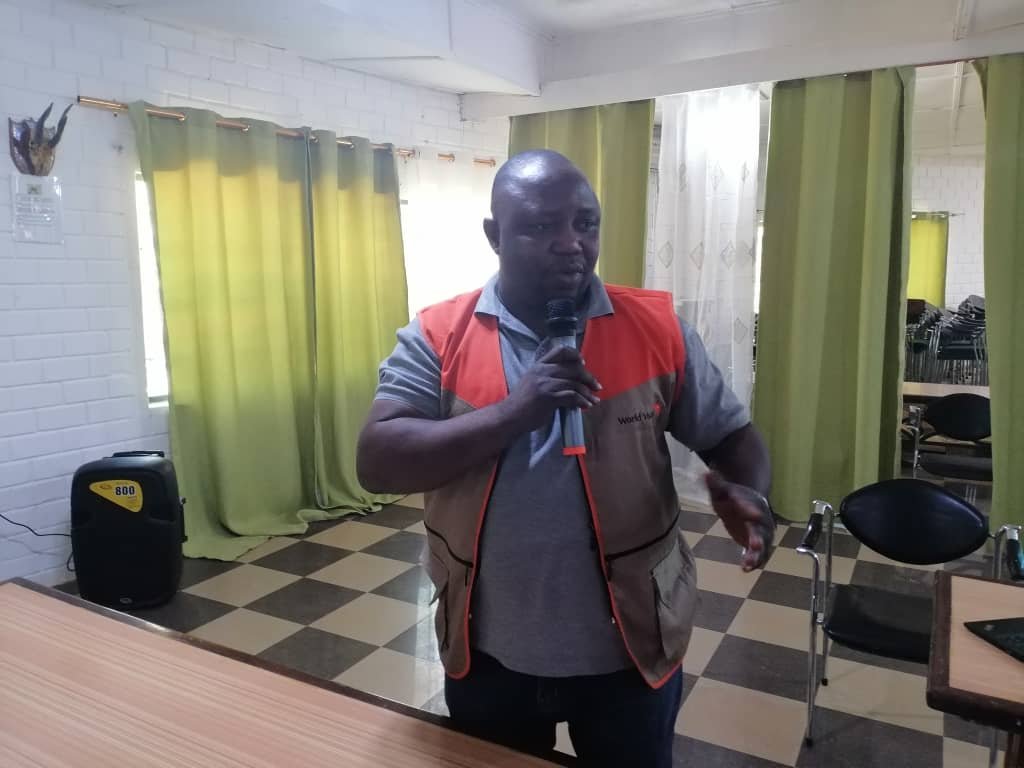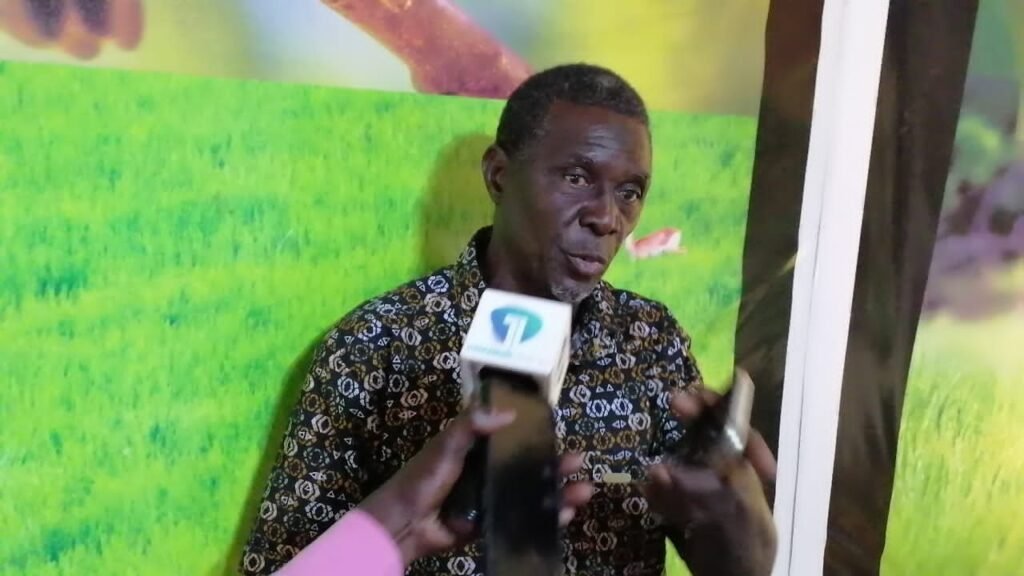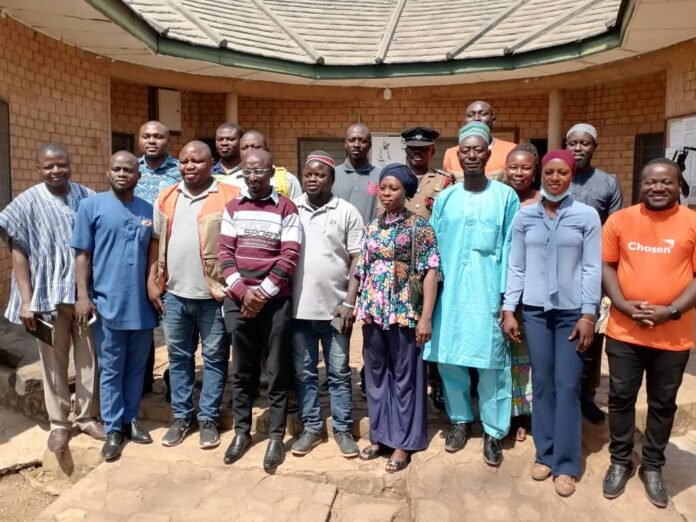World Vision Ghana has on Tuesday 21st January 2025 held a review committee meeting on the World Vision’s EU-funded LEAN project at the Conference Hall of the Mole National Park. The Landscapes and Environmental Agility across the Nation (LEAN) Project is an EU-funded initiative that seeks to directly contribute to the national efforts of conserving biodiversity, improving livelihoods of smallholder farmers, increasing climate change resilience, and reducing emissions from land use changes in the savannah, high forest, and transition zones of Ghana.
The project is being implemented in Ghana until 2025 by a consortium of World Vision, Tropenbos Ghana, EcoCare Ghana, and Rainforest Alliance. The objective of the meeting is to provide updates on the project delivery in the West Gonja municipality, and share remaining priorities and discuss sustainability measures ahead of the project closure.

Mr. Joseph Yelkabong, LEAN Project Manager at World Vision, speaking to the media after the review meeting expressed his gratitude for stakeholders as they gave them feedback on the project which he believes will help them in their next stage of planning especially since the project is about to end and the discussion of its sustainability since that is the key thing of every project.
According to him, beneficiaries of the project had several forms of benefits such as ruminants distribution and basic animal husbandry training and also provided structures which are bee hives for persons interested in honey harvesting. According to him, even though they faced a challenge as most of the livestock died with a high rate of mortality rate, the basic animals husbandry training still lies on the people and that the livestock will be replaced again.

He also disclosed that some other beneficiaries will be provided with weaving materials that will also weave smock cloths for better livelihoods. Which he said will take place on Thursday, 23rd January 2025, at the forecourt of the West Gonja Municipal Assembly. He added that some women also received training on soap making and to building their capacities, and introducing women into “Saving for Transformation” (S4T) which aims to build financial resilience by supporting community members to save together in a safe, convenient, and flexible way.
Savings groups are owned, managed, and operated by the members, using a simple, transparent method whereby groups accumulate and convert small amounts of cash into savings. The group’s savings can be lent to members as credit. This supports parents and caregivers to manage cash flow, generate income, and meet their family’s basic needs.
Mr. Yelkabong said the multiple benefits derived from the project were strengthening the environmental agility and enhancing communities’ adaptive capacity against climate change.
(Cue Audio of Mr Yelkabong)
Alhaji Ronnie Sakara, chairman for the Landscape Management Board (LMB) for the LEAN project, emphasized on the benefits of the project and its impact on livelihoods.

He said the project is focused on managing our scarce resources such as our forest, preventing tree felling for charcoal burning. According to him, some of these activities are the only source of income for some others, hence alternative jobs should be provided, hence the LEAN project. He expressed gratitude to World Vision and the EU for the LEAN project.
(Cue Audio of Alhaji Ronnie)
LEAN is a four-year project funded by the European Union’s flagship GCCA+ initiative that aims to conserve biodiversity, build climate resilience, and reduce emissions from land-use changes in the savannah, high forest, and transition zones of Ghana—and all while helping local farmers to improve their livelihoods. It will be implemented on the ground by a consortium of four local and international NGOs with expertise in these challenging fields: The Rainforest Alliance, World Vision Ghana, Tropenbos Ghana, and EcoCare Ghana.




